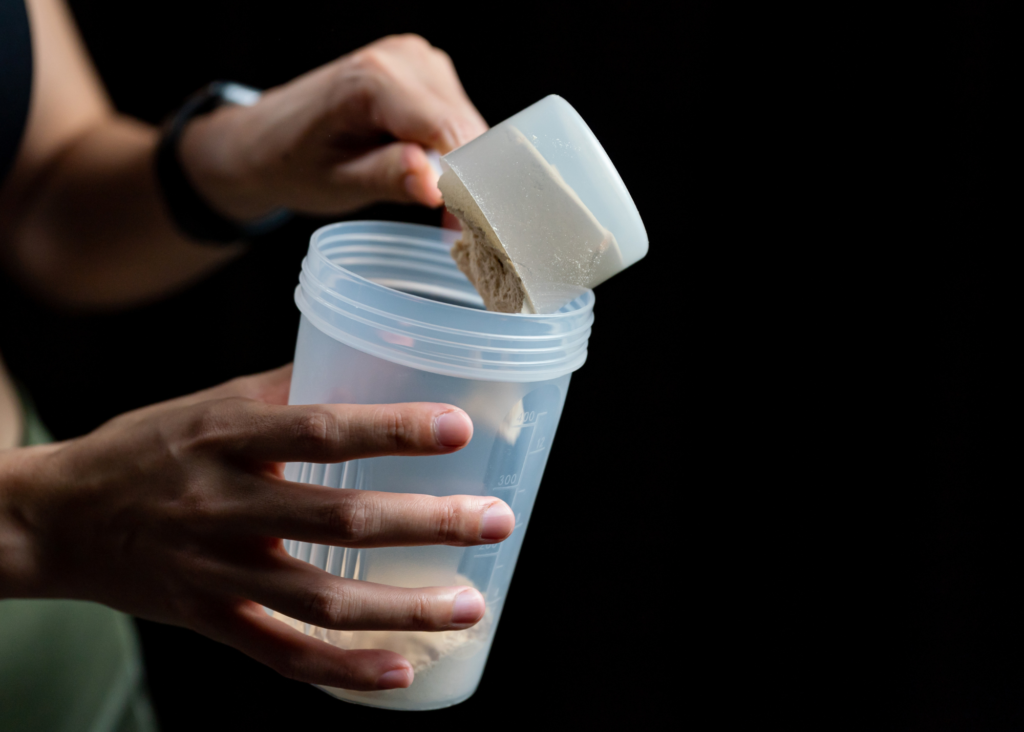No products in the cart.
The Vital Science Blog
Starting Living Your Best
- Premium Fitness Updates
- Exclusive Discounts
Body Shop: Protein Protection!

Protein Protection!
Dwayne N. Jackson, PhD
One of the most popular debates in the fitness industry is whether or not you can maintain or even gain lean muscle mass when dieting for fat loss. Most cutting phases involve caloric restriction, high-intensity training, and cardio, which can set up an environment of negative protein balance in the body. However, this state not only promotes fat loss but also leads to decreased muscle mass. Certainly, you must restrict calories to get to “sub 10%” body fat levels, but research and anecdotal reports suggest that this does not necessitate sacrificing your hard-earned gains.
Recent research from the College of Charleston (Charleston North Carolina) suggests that tweaking pre- and post-workout supplementation can promote greater fat loss while sparing muscle. In this single-blind, matched-group trial, published in the Journal of Strength and Conditioning Research, 16 resistance-trained males participated in a bodybuilding style split resistance training program (4 days/week) for 8 weeks. They were instructed to drink either a pre- and post-exercise whey protein shake (28 grams of protein each) or a pre- and post-exercise carbohydrate-based nutritional supplement (28 grams of carbohydrates each). The participants’ diets were customized for their baseline body composition and they were instructed to follow their custom diets for the entire 8-week progressive resistance training program and supplementation regimen.
The Verdict!
Although dieting coupled with pre/post-exercise whey protein supplementation or carbohydrate supplementation resulted in decreased body weight in both groups, only those who took whey protein maintained lean body mass (while losing fat mass). These data illustrate that decreases in body weight in the whey protein group were primarily due to fat loss. In contrast, those who took pre-/post-exercise carbohydrates lost lean body mass and had a smaller (non-significant) change in fat mass. In terms of performance, both the whey and carbohydrate groups saw increases in lower-body strength, but only the whey group saw increased upper-body strength.
ACTION POINT: This study clearly shows that when undergoing a fat-loss diet and intense training regimen, taking a calculated scientific approach to pre- and post-exercise supplementation can optimize your fat loss/muscle-building goals. These data support what we have been preaching for years—to maximize muscle growth and minimize fat levels, always be sure to take in 20-40 grams of high-quality whey protein isolate 30 minutes pre-exercise and another 20-40 grams immediately post-exercise.
Reference:
Dudgeon WD, Kelley EP, Scheett TP. Effect of Whey Protein in Conjunction With a Caloric-Restricted Diet and Resistance Training. J Strength Cond Res. 2017 May;31(5):1353-1361.
Taurine and Caffeine
Many energy drinks and pre-workout supplements combine caffeine and taurine to promote increased energy levels. However, with years of research supporting caffeine as an effective ergogenic aid, taurine tends to get left standing in caffeine’s shadow. Notwithstanding, there are numerous past studies that highlight taurine’s ergogenic potential, but the latest data published in the International Journal of Sports Physiology and Performance redeems taurine as a key player in the maintenance of fatigue.
In this study, scientists from St. Mary’s University (London, UK) investigated the effects of caffeine (5 mg/kg body weight), taurine (50 mg/kg body weight), caffeine + taurine co-ingestion, or placebo on anaerobic power (using repeated Wingate cycling performance tests). They found that caffeine, taurine, and caffeine + taurine co-ingestion promoted similar increases in average power output and peak power output, however taurine on its own promoted the lowest test-to-test fatigue (aka inter-sprint fatigue). Suggesting that the greatest anaerobic anti-fatigue benefits come from supplementing taurine alone.
ACTION POINT: Although taurine appears to come out the winner, wait before you decide to go “caffeine-free”. It should be noted that the Wingate test is a relatively short (usually 30 seconds) anaerobic power cycling test, with limited application. Further, inter-sprint fatigue measures among all the interventions were within 5% of each other. Notably, caffeine has been shown to promote its greatest benefits with longer duration events and during common workout performances not addressed in this study. Based on this, we recommend stacking taurine (1-3 g) and caffeine (100-300 mg) and taking this stack approximately 30 minutes pre-workout. Stacking caffeine with taurine will not only give you a multitude of performance gains, but also taurine will limit the side effects noted with higher doses of caffeine.
Reference:
Warnock R, Jeffries O, Patterson S, Waldron M. The Effects of Caffeine, Taurine or Caffeine-Taurine Co-Ingestion on Repeat-Sprint Cycling Performance and Physiological Responses. Int J Sports Physiol Perform. 2017 Mar 24:1-24.
SHARE THIS POST:
Coaching Subscriptions packages
Starting Living Your Best
- Premium Fitness Updates
- Exclusive Discounts
If you’re interested in staying fit, eating healthy, and living a healthier life, then you should join my newsletter! I’ll be sending out regular updates on fitness nutrition and health, so you can stay informed and make the most of your health.
